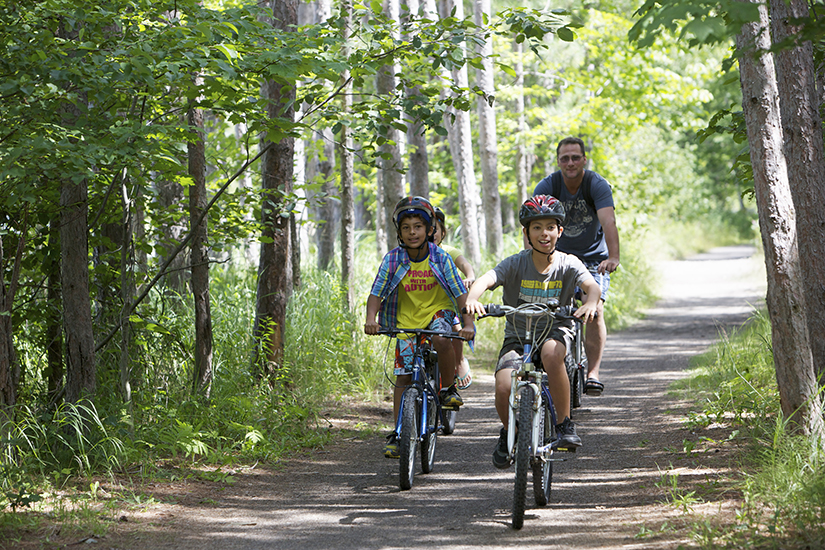Are you enjoying the health benefits of time in nature this summer?
The outdoors make a great place to get your workout in. Whether it’s hiking, cycling, or swimming, there are tons of ways to be active in nature. But outdoor workouts bring a host of environmental conditions along with them.
When the weather gets warm, air quality often suffers. This can be an issue for those with breathing conditions, like asthma. Knowing the air quality of your area ensures you can have a safe, fun time in the outdoors without having to worry about the air you’re breathing.
Luckily, there is a tool available in Ontario to guide you in reducing risks from the effects of air pollution.
Understanding the AQHI

The Air Quality Health Index (AQHI) is a scale designed to help you understand what the air quality around you means to your health, helping you make decisions to protect your breathing.
The AQHI measures the air quality in relation to your health on a scale from 1 to 10 – the higher the number, the greater the health risk associated with the air quality.
The index describes the level of health risk associated with this number as “low,” “moderate,” “high,” or “very high,” and suggests steps we can take to reduce our exposure and improve the quality of the air we breathe.

Seniors, children, those working outdoors, and people with chronic heart or lung conditions are at a greater risk of the health effects associated with high AQHI numbers.
You should get into the easy habit of checking your local AQHI number regularly, especially during the hot summer months when there is an increased likelihood that air pollution will affect your breathing.
Tips to protect your breathing outdoors

Follow these tips to protect your lungs and breathing from air pollution:
- Check the current and forecast maximums in your community at www.airhealth.ca or by downloading the app
- Follow the AQHI health messages based on whether or not you are in the “at risk population”
- Avoid areas that have a higher pollution level, such as near major roads
- Exercise indoors if the AQHI level is too high
- Ask your healthcare provider about protecting your lungs when air quality is poor
- Sign up for air quality alerts here, or hear recorded messages at 1-800-387-7768 or 416-246-0411 (local in Toronto)
Learn more about the AQHI here.
Want to breathe easy?

Natural spaces like provincial parks often have better air quality than cities. They are usually in rural areas, away from many major pollutants. Trees and vegetation like those found in parks can directly remove pollutants, and reduce air temperatures.
Take a nature break this summer to get some fresh air…literally!
Any questions?
Keep your asthma well-controlled to reduce the risk of breathing difficulties. For more information call The Lung Association Lung Health Information Line at 1-888-344-LUNG (5864) or visit their website.
Thank you to our friends at The Lung Association for providing this information and for helping to sustain the Healthy Parks Healthy People movement.
